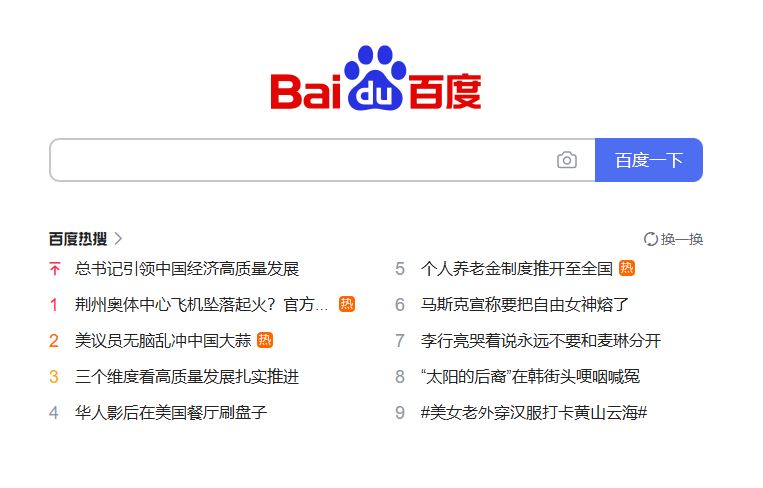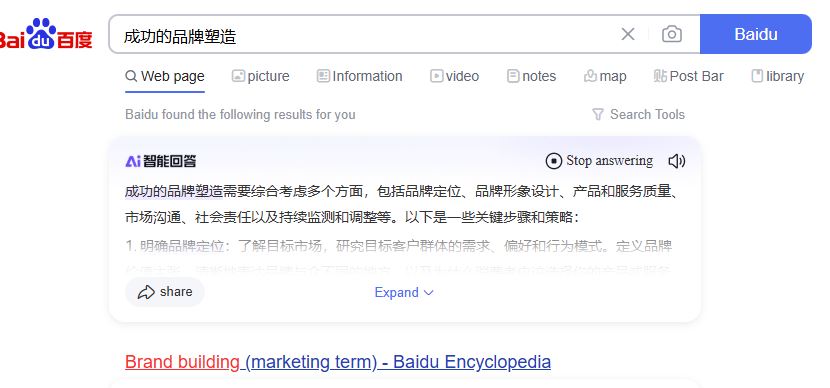
So, have you been thinking of expanding your business to China after witnessing the successful ventures of companies across the globe? That is a great idea indeed! But it looks like you are not very familiar with the digital landscape of China’s thriving market.
See, things work a little differently in China, and thus, you need to prepare yourself with the local jargon before deciding to hop in. One of the biggest shocks businesses receive after stepping in the digital realm of China is absence of Google.
Oh, yes, you might not find search queries giant Google ruling the screens of Chinese users. Instead, you will come across Baidu, Google’s Chinese counterpart. What are the main differences between the SEO optimization policies of Baidu vs. Google? And how could it impact your website’s performance in China? Let’s learn in detail.
Why Baidu is So Popular in China?
Since Google does not work in China due to government policy, there had to be some alternative. Thus, Baidu became the sole king in China’s uncharted lands by offering services to 56.15% of the market.
What allowed Baidu to get that reputation is its super flexibility with Chinese users and websites. Its search results are typically tailored to their needs. Not only that, but Baidu also offers an ability to understand Chinese text, thus offering users local results to their queries.
Customizing to the market needs of China allowed Baidu to hold all the aces in here.
Baidu vs. Google: What Are 7 Main Differences to Learn in 2025?
So, is Baidu just a Chinese version of Google, or are there more layers to it? Well, to begin with, Baidu definitely is not just a Google replica. Since it’s specifically designed for the needs of Chinese users, you might find various algorithm changes on this platform.
-
Language Preferences of Search Engines
One of the most significant differences between Baidu vs. Google is their language preferences. Baidu primarily caters to the Chinese-speaking audience, making Mandarin the essence of its algorithm. Thus, websites optimized in simplified Chinese tend to rank higher on Baidu.

Baidu’s primary focus on Chinese language feature is to meet the needs of locals. To succeed on Baidu, businesses must ensure their websites, including metadata, URLs, and content, are fully translated into simplified Chinese.
-
Baidu vs. Google: License Requirements
If you plan to operate in China, you must comply with local regulations. Baidu requires businesses to obtain an Internet Content Provider (ICP) license issued by the Chinese government.
Without this license, your website will not rank well, if not at all, on Baidu. Since Google does not impose such licensing requirements, thus businesses often overlook it when planning to expand.
However, you need to know that securing an ICP license is non-negotiable for businesses wanting to rank on Baidu. Work with local authorities or a Chinese agency to speed up this process.

-
Social Media’s Impact on Google vs. Baidu
Social media sites like Facebook & Twitter play a significant role in Google’s off-page SEO. They can successfully contribute to backlinks and increase authoritativeness of sites.
Baidu, however, operates differently. Due to China’s restrictions on Western social media, local platforms like WeChat, Weibo, and Douyin dominate the space and influence Baidu’s rankings.
-
Mobile Web Browsing Optimization
China has a massive mobile-first audience, and Baidu caters heavily to mobile users. While both Baidu and Google emphasize mobile-first indexing, Baidu is particularly strict about mobile optimization.
Thus, websites that load quickly and are compatible with Baidu’s mobile browser and app, are more likely to get ranked.
-
Impact of Meta Keyword on Baidu vs. Google SEO
While Google phased out meta keywords years ago, Baidu still considers them an essential ranking factor. Including relevant and strategic meta keywords can positively impact your website’s ranking on Baidu.

Thus, when optimizing your website make sure to include 3 to 4 keywords to get to increase its chances of getting ranked.
-
Differences in Off-Page Practices
Off-page SEO practices differ significantly between Baidu and Google. While Google values high-quality backlinks from diverse domains, Baidu prioritizes backlinks from local Chinese websites. Additionally, Baidu penalizes websites with backlinks from untrustworthy sources more harshly than Google does.
-
Running Paid Ads: Baidu vs. Google
Both platforms offer paid advertising options, but the approaches differ. Google Ads is globally recognized for its advanced targeting features and analytics. Baidu’s PPC platform, however, is tailored to the Chinese market and requires a more localized understanding of keywords and user behavior.
Running ads on Baidu comes with additional expenses. All Baidu ads must strictly adhere to local advertising laws in China. For instance, sensitive topics or unverified claims can result in ad rejection or even penalties.
Enter Chinese Markets With Baidu-Optimized Websites
Now that you know, Google will no longer be your companion when you start your journey across China. Make sure to understand the unique algorithm changes of Baidu. Learn from local experts or hire a professional local Chinese marketing agency to customize your website per Baidu’s metrics.
Having a well-optimized presence on Baidu can be a huge step towards elevating the rank of your website and business in the country. Thus, work on developing a Baidu strategy that will beat the competition and elevate your position in China.


